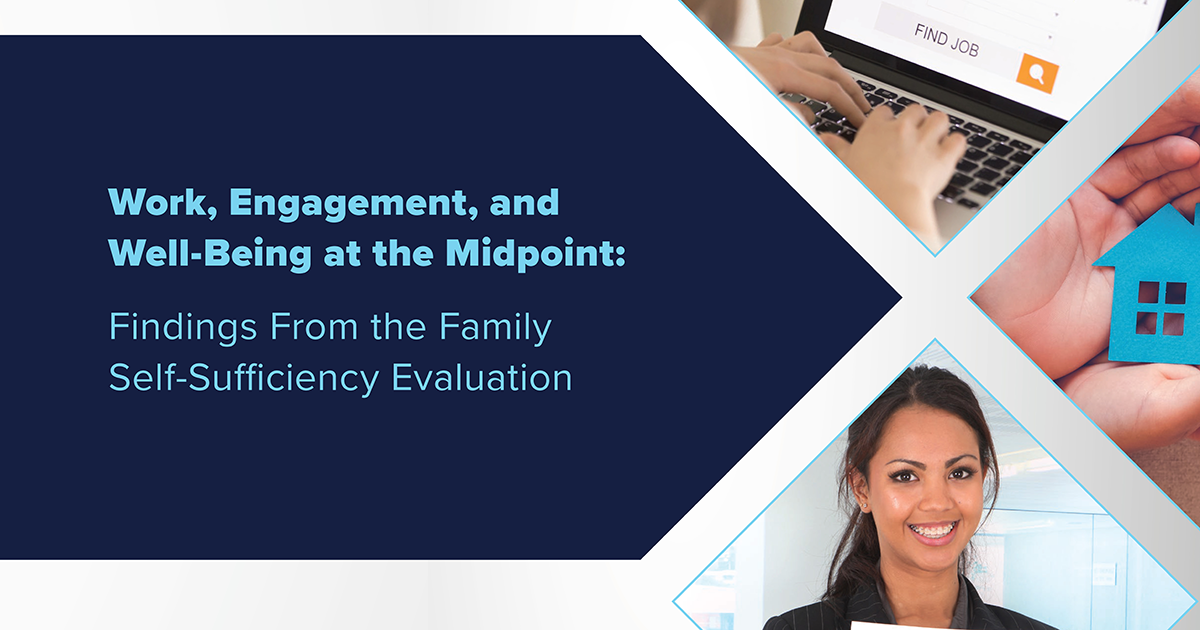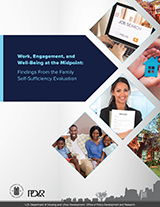Work, Engagement, and Well-Being at the Midpoint
Findings From the Family Self-Sufficiency Evaluation

 In 2012, the U.S. Department of Housing and Urban Development commissioned a national random assignment evaluation of the Family-Self Sufficiency (FSS) program and its impacts on labor market and other quality-of-life outcomes for households receiving Housing Choice Vouchers. The FSS program has two key components: case managers who work with participant households to develop individualized self-sufficiency plans and access community services, and savings and asset development via an interest-bearing escrow account for participants based on increases in earnings. This report examines FSS program implementation, participants’ engagement, and program impacts on labor force participation and government benefits receipt. Three years after random assignment into the FSS program or control group, the research team concluded that (1) FSS increased participation in a range of employment-related services, especially education and financial literacy; (2) participants in the FSS program did not experience a sustained increase in employment rates or average earnings; and, (3) FSS participants experienced steady shifts from part-time to full-time employment.
In 2012, the U.S. Department of Housing and Urban Development commissioned a national random assignment evaluation of the Family-Self Sufficiency (FSS) program and its impacts on labor market and other quality-of-life outcomes for households receiving Housing Choice Vouchers. The FSS program has two key components: case managers who work with participant households to develop individualized self-sufficiency plans and access community services, and savings and asset development via an interest-bearing escrow account for participants based on increases in earnings. This report examines FSS program implementation, participants’ engagement, and program impacts on labor force participation and government benefits receipt. Three years after random assignment into the FSS program or control group, the research team concluded that (1) FSS increased participation in a range of employment-related services, especially education and financial literacy; (2) participants in the FSS program did not experience a sustained increase in employment rates or average earnings; and, (3) FSS participants experienced steady shifts from part-time to full-time employment.






